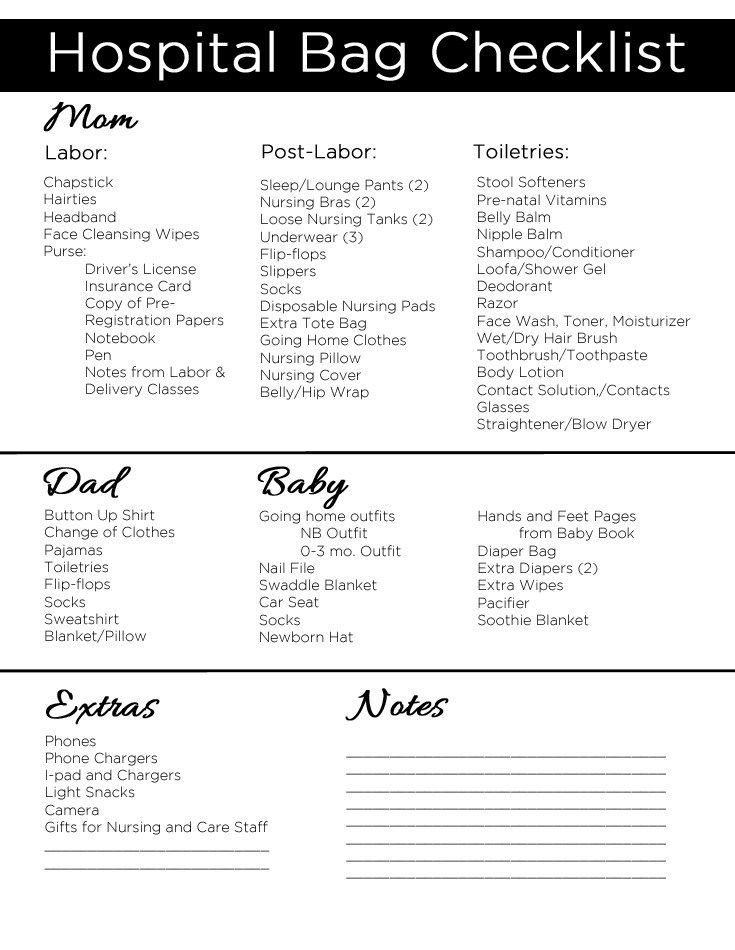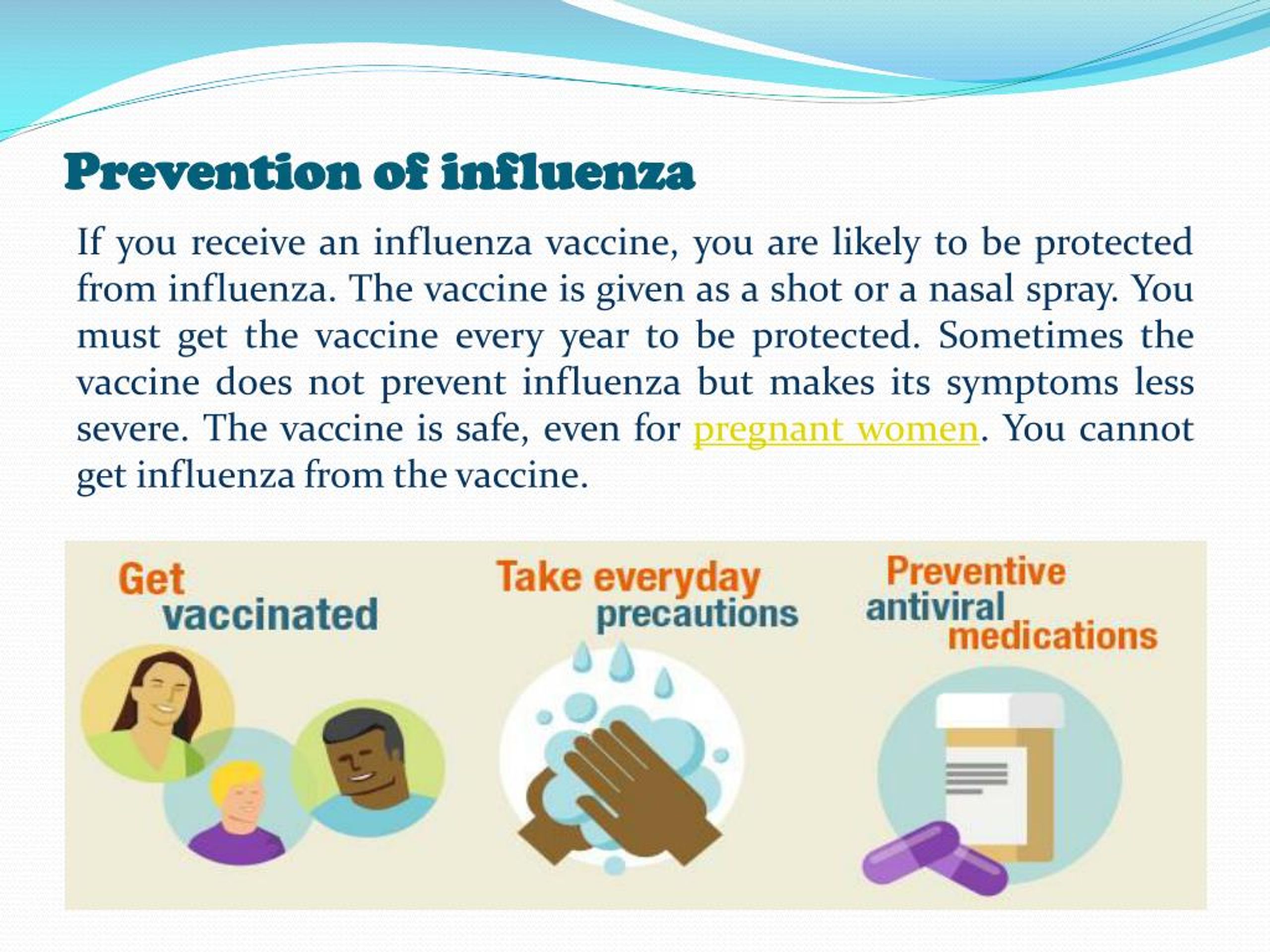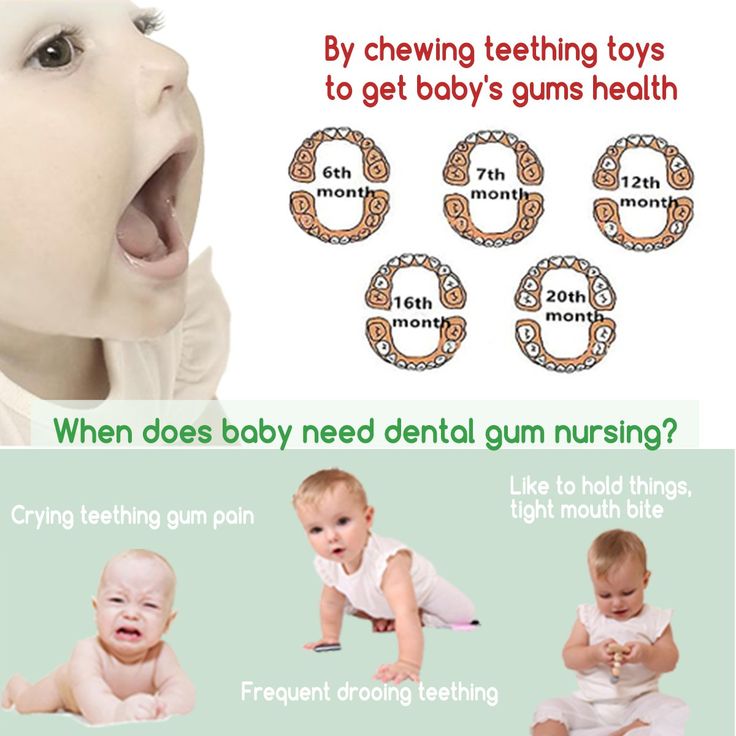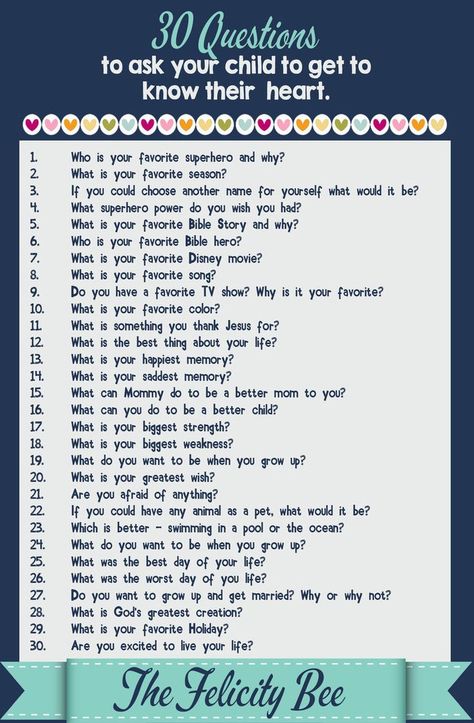Hospital bag newborn
What to Expect During Labor
If you’re planning on a hospital birth, you’re in good company: over 98 percent of births in the U.S. happen in hospitals. Though every birth is different, it helps to know what to expect before it’s time to check in to the hospital.
Taking a Hospital Tour
Schedule a tour of the hospital where you plan to give birth a month or two in advance of your due date—most hospitals recommend you tour the facilities at around 32 weeks.
On the tour, a guide will show you where to park, where to check in and what the delivery rooms look like. They’ll also go over labor and delivery options available to you, and show you the recovery rooms. Don’t be afraid to ask questions, and if you have a birth plan, bring it with you (also remember to bring a copy when you check in to the hospital).
Checking into the Hospital for Birth
Chances are you’ll be in labor when you arrive at the hospital, though not if you have a scheduled induction or c-section. Luckily, hospital staff members are prepared for this, and the check-in process is usually quick. They’ll ask you for your name and insurance information, and they might also need your license plate number if the labor and delivery wing has a special parking lot.
Once you’re checked in, the nurse at the front desk will put a wristband on you and another nurse will escort you to a triage room (or to a labor and delivery room, if you have a scheduled delivery).
The Triage Room
If you’re in labor when you arrive at the hospital, your next stop after you check in will a labor and delivery triage room. A nurse will connect a fetal monitor to your belly to check your baby’s heart rate. They will also monitor your contractions to see how far apart they are and check your cervix to see how dilated you are.
If your contractions are five minutes apart and one minute long for at least one hour, and your cervix is dilated three centimeters or more, you’ll most likely be admitted. But if labor is progressing slowly, you may be sent home at this point. Don’t worry—you’ll be back soon enough!
But if labor is progressing slowly, you may be sent home at this point. Don’t worry—you’ll be back soon enough!
The Labor and Delivery Room
The labor and delivery room is where you’ll spend most of your time while in labor at the hospital. Depending on your birth plan and the options available to you, you might bounce on a yoga ball, take a shower or labor in a special tub as your contractions get closer together.
A nurse will monitor your labor and your baby’s heart rate, either once per hour or continuously. If you get an epidural, an anesthesiologist will go through that process with you and administer the epidural in the room.
Most hospitals allow you to have partners, midwives, doulas or family members in the room with you while you’re in labor if you choose, but they usually have a limit. Ask about this during your tour and keep the number in mind as you write your birth plan.
And your family won’t be the only ones in the room with you—during your labor, you might encounter multiple labor and delivery nurses.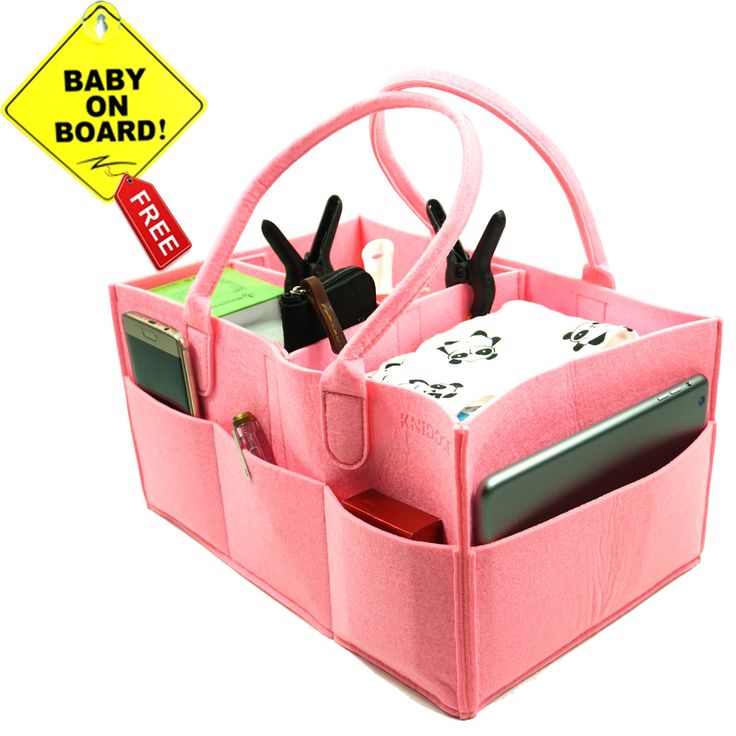 They change shifts every eight to 12 hours, so the nurses you meet when you arrive might be different than the ones there when you give birth in the hospital.
They change shifts every eight to 12 hours, so the nurses you meet when you arrive might be different than the ones there when you give birth in the hospital.
What Happens in the Delivery Room
When the time comes, you’ll most likely give birth in the labor and delivery room (unless you have a c-section, in which case you’ll be moved to an operating room).
As you dilate to 10 centimeters and start to push, an OBGYN will join the labor and delivery nurses in the room to assist in the hospital delivery. This may or may not be the practitioner you’ve been seeing throughout your pregnancy, but rest assured that is totally normal.
If you’d like, ask your doctor or midwife about the other OBGYNs who work at the hospital beforehand. You may be able to meet them ahead of your delivery, which can help you feel more comfortable when the time comes.
About Babylist
Looking for the best items for your growing family? Add all your favorite baby products to ONE registry with Babylist.
What Happens After You Give Birth
You did it! After the birth, a doctor or nurse may place your baby on your chest for some rest and bonding time. Then they’ll weigh and measure your baby, take some footprints and run some routine tests, such as a Vitamin K injection or eye ointment application (your doctor will go over these with you in advance).
They’ll also perform the APGAR score at one and five minutes after baby is born to assess how they tolerated the birth and then how they’re adapting to the world.
Here’s what is looked at:
- Appearance (skin color)
- Pulse (heart rate)
- Grimace (reflex irritability)
- Activity (muscle tone)
- Respiration (breathing effort)
Each one is scored on a scale of 0 to 2, with 2 being the best score.
APGAR Score
| Score | 0 | 1 | 2 |
| Appearance | Entire body is blueish | Body good color; hands/feet blueish | Good color |
| Pulse | None | Fewer than 100 beats/minute | More than 100 beats/minute |
| Grimace | No reaction | Grimace | Cough and sneeze or cry when pinched |
| Activity | Limp | Some flexing of arms and legs | Active motion |
| Respiration | No cry | Weak or irregular cry | Strong cry |
After you deliver the placenta (this is typically known as the third stage of labor), you will also be monitored to make sure your blood pressure is steady and there aren’t any labor and delivery complications. If you experienced any tearing during delivery, a doctor will stitch you up.
If you experienced any tearing during delivery, a doctor will stitch you up.
This recovery time in the labor and delivery room at the hospital varies depending on the birth, but it will probably be a couple of hours. Friends and family can visit you in this room (and meet your new baby!) as well, if you’d like.
What Happens in the Recovery Room
Once the nurses and doctor are sure that you and your baby are doing well and have had some time to rest, they’ll move you to a recovery room. This is where you’ll spend the next night or two (how long you spend in the hospital depends on your hospital and your birth). Nurses will come and check on you every few hours, refilling your water and making sure you have plenty of ice. A nurse will also help you use the bathroom for the first time after birth, especially if you had an epidural.
Your partner can stay in the room with you, usually on a cot, and the hospital will provide a bedside bassinet for your baby, if you’d like them to sleep in the room with you.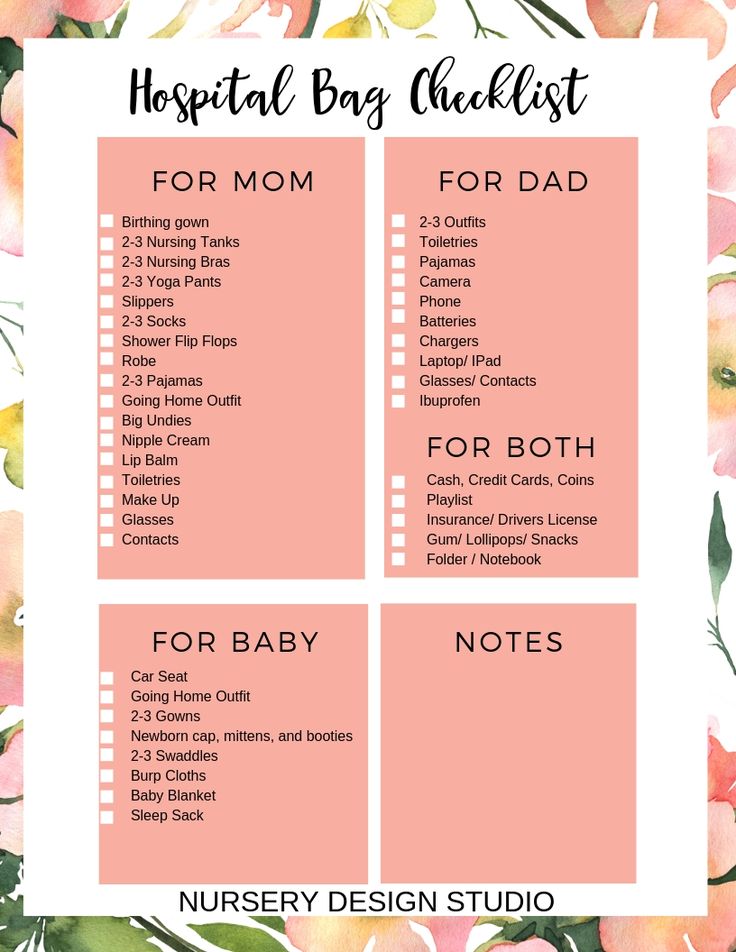 If your new baby has any older siblings, they usually can’t stay in the recovery room, but they can visit during hospital visiting hours.
If your new baby has any older siblings, they usually can’t stay in the recovery room, but they can visit during hospital visiting hours.
If you choose to breastfeed, you’ll get plenty of time to practice here and will probably meet with a hospital lactation consultant.
Checking Out of the Hospital after Birth
After a day or two of recovery at the hospital, it will be time to head home with your new baby. (You most likely will stay longer if you’ve had a c-section.) The nurses will give you both a final checkup and send you home with plenty of instructions (and probably some disposable mesh underwear).
Someone at the hospital will walk down to your car with you to see you out safely and make sure you have that car seat in there!
This information is provided for educational and entertainment purposes only. We do not accept any responsibility for any liability, loss or risk, personal or otherwise, incurred as a consequence, directly or indirectly, from any information or advice contained here.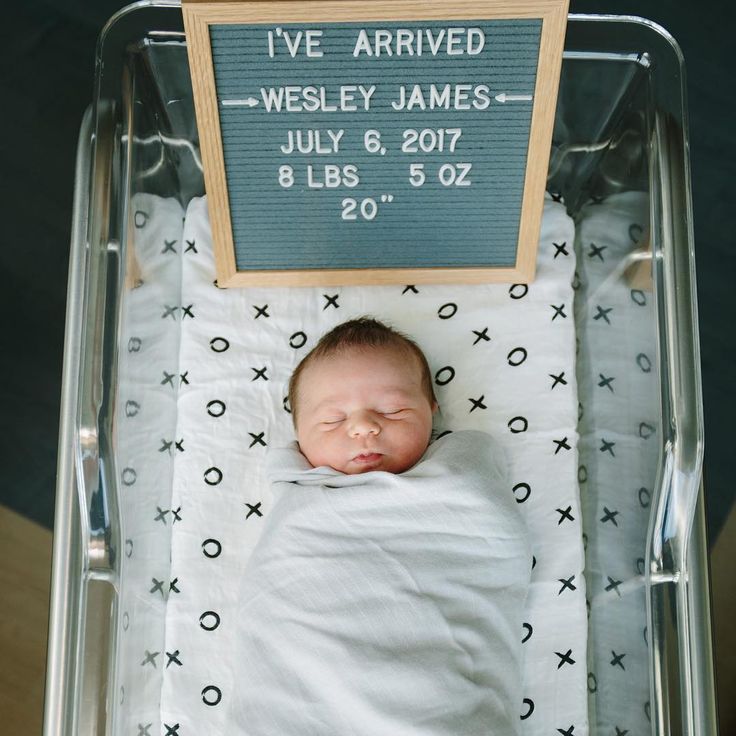 Babylist may earn compensation from affiliate links in this content. Learn more about how we write Babylist content and the Babylist Health Advisory Board.
Babylist may earn compensation from affiliate links in this content. Learn more about how we write Babylist content and the Babylist Health Advisory Board.
The Essential Newborn Baby Hospital Bag Checklist
Your due date is rapidly approaching, which means your baby could arrive any day now! You’re likely excited and nervous about going into labor. You can reduce that stress by planning ahead and having your bags packed and ready no later than four weeks before your due date.
Not sure what to pack? We’ve created the essential newborn baby hospital bag checklist to help! We’ve even put together three more checklists for supplies mommies-to-be and their partners will need — a labor bag, a recovery bag, and a partner’s bag.
Before we get to those, we’ll focus on when to pack your hospital bag and the essential items you’ll want for your baby.
When To Pack The Hospital Bags
Whether it’s your baby’s bag, your labor bag, your recovery bag, or your partner’s bag, it’s always a good idea to have them packed well before your due date so you won’t be running around in a panic when you go into labor.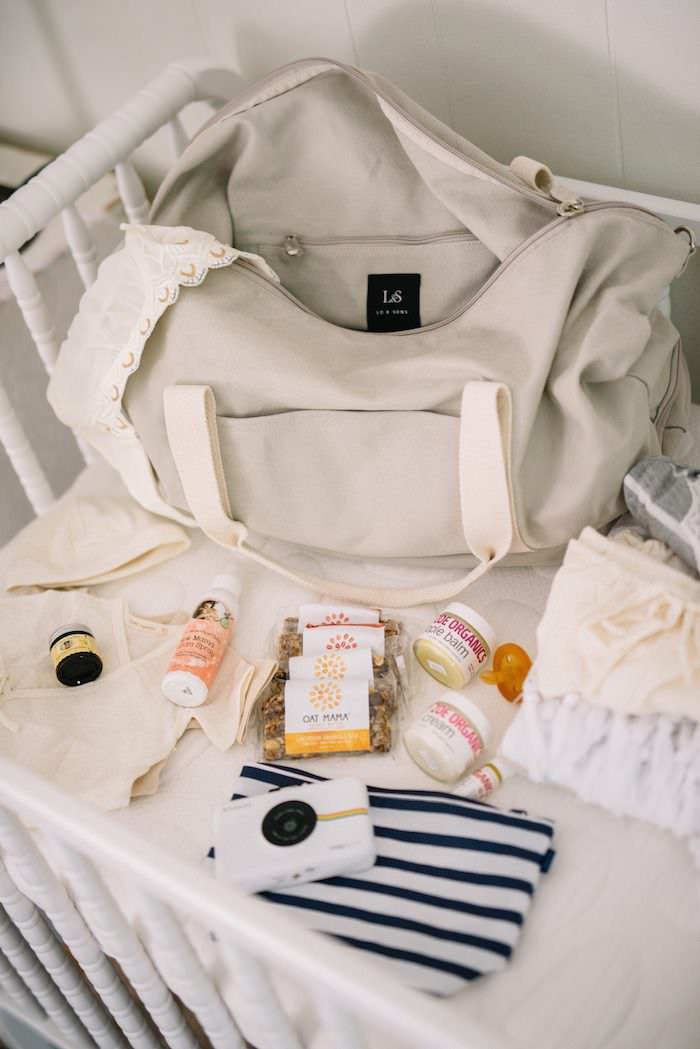
Trust us, you’ll already be anxious enough! And besides, you never know if your baby will decide to arrive early.
We recommend going through your hospital bag checklist anywhere from 35 to 38 weeks into your pregnancy.
In most cases, you’ll still have two weeks or so before the birth, and you’ll need everyday items like your toothbrush and phone charger while you’re at home. Make a list of items you can’t pack early and toss them in your bag right before you leave the house.
Your Newborn Baby Hospital Bag Checklist
Your baby doesn’t need much at first — just nutrients, warmth, and you. All they’re going to be doing is sleeping and eating. The hospital will provide plenty of blankets to keep your baby warm, but there are some other must-haves that you should pack ahead of time.
Car Seat
You and your baby won’t be able to go home until you can pass the car seat test. This test ensures that your baby is big enough and fits properly in the car seat for safety reasons.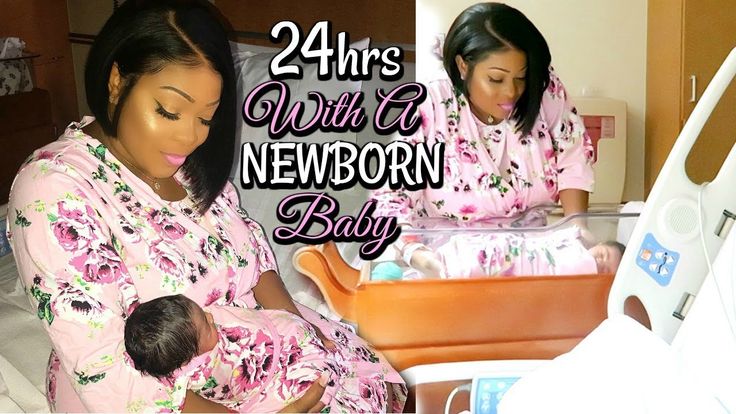
Also, the nurses that wheel you out to your car won’t allow you to leave unless you have a properly installed car seat in the back seat. Make sure the car seat has plenty of padding and that it can be mounted facing the rear of the car.
Blankets And Swaddles
As mentioned, the hospital will probably have blankets available, but chances are they’re going to get dirty, and they may not be very soft. Pack some of your own to keep your baby swaddled and protected against the cold.
Blankets will also come in handy when leaving the hospital. You can cover up your little one with their blanket in the hospital and use it for the car ride home.
Bring your own swaddle blankets to the hospital since the nurses will teach you how to properly swaddle your little one. Having this guidance fresh on your mind, you’ll leave with confidence in swaddling your little one!
Clothes To Wear Home
Your baby is going to need something to wear home, so plan accordingly. When you’re packing your bag, think ahead to the month in which the baby will be born. What will the temperature be? If it’s going to be cold, don’t forget socks, mittens, and a hat. These items can even be useful in the summer to keep drafts off your baby’s sensitive skin.
When you’re packing your bag, think ahead to the month in which the baby will be born. What will the temperature be? If it’s going to be cold, don’t forget socks, mittens, and a hat. These items can even be useful in the summer to keep drafts off your baby’s sensitive skin.
This outfit is special and you’ll remember and cherish it for years. You can even save it as a keepsake. Because remember, you and your little one are going home and picture taking will be inevitable!
Hat And Socks
Bring a hat and a few pairs of socks for your new bundle of joy. It may be cold in the hospital, and you’ll want to protect their delicate new skin and keep it warm.
Burp Cloths
Burp cloths—basically just small rectangles of cloth—are invaluable, so be sure to pack at least three or four. Your baby will likely spit up frequently but burp cloths can help keep your clothes, and your baby’s clothes and blankets, nice and clean.
Nursing Pillow
If you choose to breastfeed, a nursing pillow will be a lifesaver! The nursing pillow props up your little one and supports their head, along with providing some extra support for you while nursing.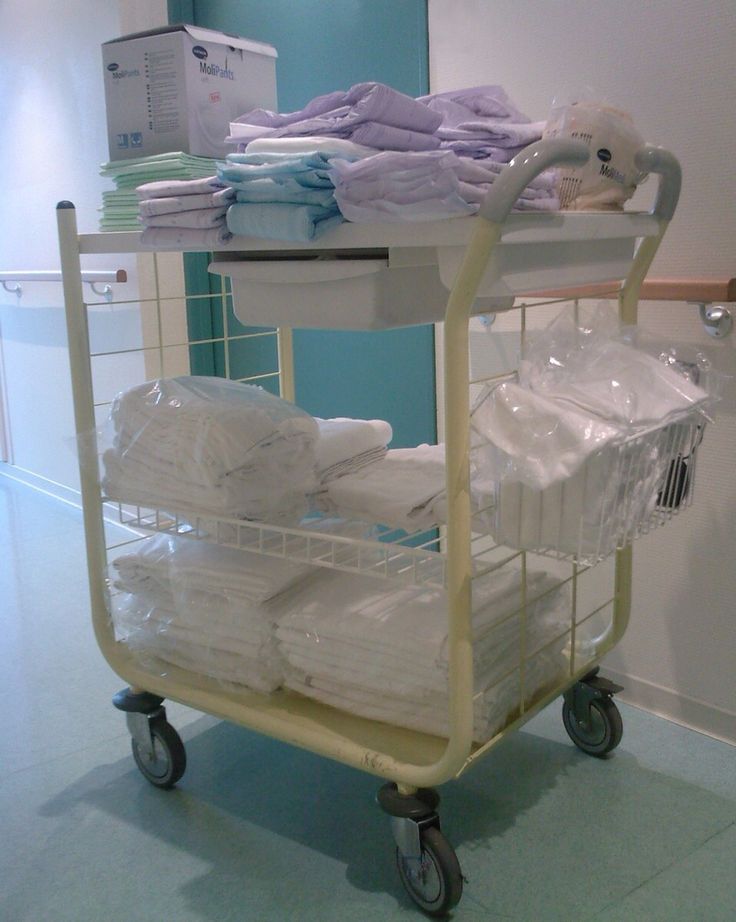
Bottles And Formula
Most hospitals will provide bottles and formula, but it’s a good idea to check and see what they use. If you plan on bottle-feeding your baby and the hospital doesn’t provide exactly what you want or need, be sure to pack several bottles and your formula of choice.
If you’re there for an extended period of time after the birth, ask the nurses to help you clean the bottles so you can use them for the next feeding.
Diapers
The hospital staff will likely diaper your baby the first time, but you may need to pack your own diapers for any changes thereafter.
Trying to cut down on the items you have to include on your hospital bag checklist? Call the hospital prior to your delivery date and find out if they provide diapers for newborns. If they do, you can skip this item and save space in your bag.
Baby Wipes
Whether you include diapers on your hospital bag checklist or not, it’s always a good idea to pack baby wipes.
Baby wipes have so many uses — cleaning your baby, cleaning yourself, and removing sweat and makeup, just to name a few — you’ll be surprised at how handy they can be.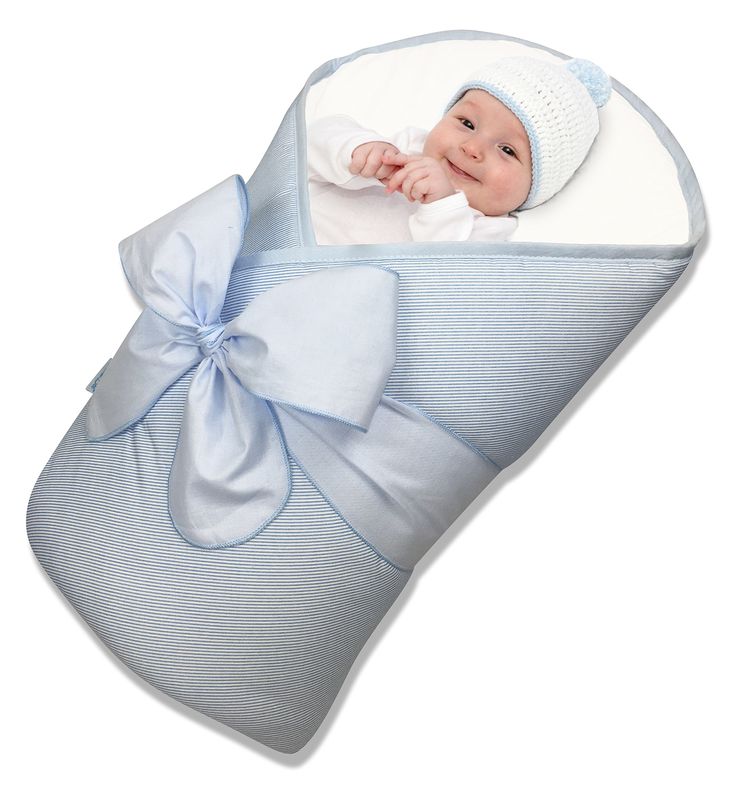
Mustela offers a variety of baby wipes for different skin types:
- Cleansing Wipes (for normal skin)
- Certified Organic Water Wipes with Cotton and Aloe (for sensitive skin)
- Cleansing Wipes Delicately Fragranced (for normal skin)
Choose the one that’s best for you and your baby.
Diaper Rash Cream
Another baby essential to include on your hospital bag checklist is diaper rash cream.
Mustela’s Diaper Rash Cream 1 2 3 and Diaper Cream with Olive Oil and Aloe are perfect for your newborn’s delicate skin because they’re specially formulated to prevent diaper rash, relieve soreness, and help your little one’s skin recover.
And you can rest easy that they won’t harm your baby’s skin because they’re hypoallergenic, tested under pediatric and dermatological control, and are free of harmful chemicals such as parabens, phthalates, and phenoxyethanol.
Baby Lotion
You might not need baby lotion right away, but it’s always good to be prepared!
Eczema, dry skin, and cradle cap can develop shortly after birth, so we recommend the following products to treat these skin concerns and keep your baby comfortable and healthy:
- Cradle Cap Cream
- Hydra Bebe Body Lotion
- Hydra Bebe Facial Cream
- Stelatopia Emollient Cream
- Stelatopia Emollient Face Cream
Leave Extra Room In Your Bag
We recommend that you leave a bit of extra room in your bag (be it the baby’s bag, your labor bag, or your recovery bag) so you can pack everything that the hospital gives you.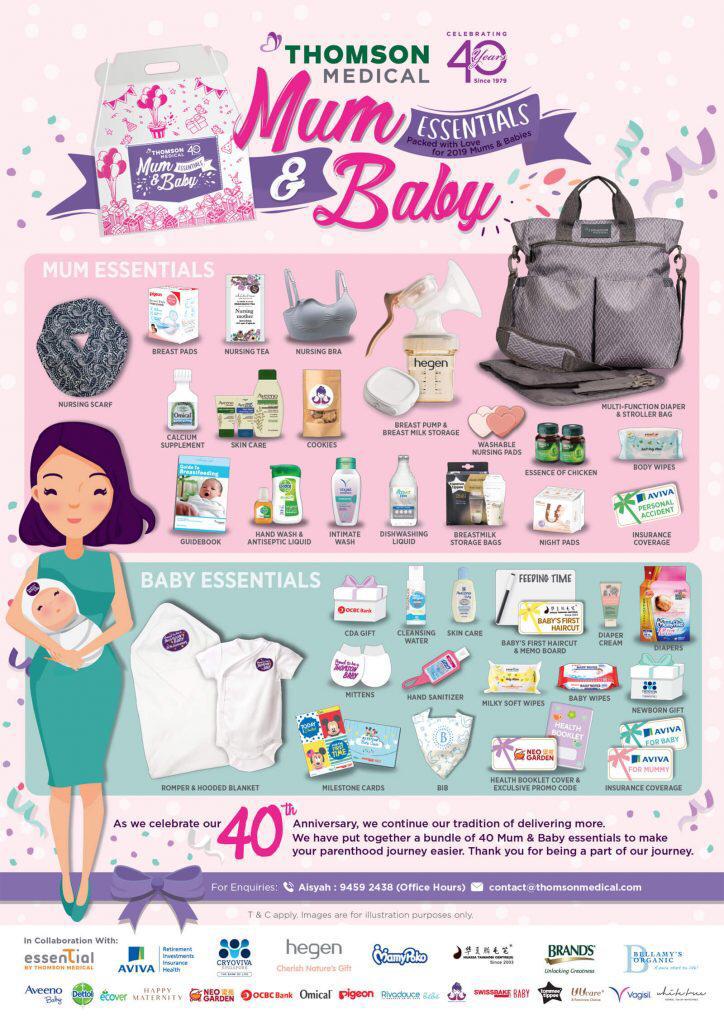 They’ll likely provide diapers, wipes, and other complementary items, and you can take it all home with you.
They’ll likely provide diapers, wipes, and other complementary items, and you can take it all home with you.
Mommy-To-Be Hospital Bag Checklists
We’ve divided this list into two separate categories: things you’ll need during labor and things you’ll need in the recovery room.
Labor Bag
These are the bare essentials you’ll need for the big day.
Birth Plan
Include a copy or two of your birth plan on your hospital bag checklist so you can refer to it during your labor.
Packing several copies of your birth plan and distributing them to the doctors and nurses helps keep everyone who’s involved in the delivery of your baby informed and on the same page.
Hospital Paperwork
Completing a portion of the hospital paperwork before your delivery date helps streamline the admitting process and makes your labor go as smoothly as possible.
Pack your copy of any completed hospital paperwork at the top of your bag so you can reach it easily if the nurses need it.
Photo ID
Be sure to add a photo ID at the top of your hospital bag checklist. You’ll need it to verify your identity when you check in.
Common forms of ID include:
- Driver's license
- Federal or state ID card
- Military ID card
- Passport
If you don’t have a photo ID, talk to the hospital admittance staff before your due date to make other arrangements.
Insurance Information
A final piece of paperwork you’ll need when arriving at the hospital is your insurance information.
If you complete your admittance forms prior to your due date, the hospital may have this information on file, but it’s better to be prepared just in case.
Extra Masks
Packing your own masks provides peace of mind during the pandemic and during especially difficult flu seasons.
Be sure to include at least two masks — maybe even three or four — so you have backups if one gets dirty. And be sure to talk to your doctor or doula about wearing a mask during delivery to prevent the spread of any illnesses.
Something To Wear During Labor
Make sure to pack a comfortable outfit to wear in the delivery room. This may be something as simple as a large t-shirt or hospital gown, or something as specialized as a birthing gown or birthing skirt.
If you’ll be in a birthing pool, throw in a dark-colored sports bra and include one or two towels for drying off after. Your hospital or birthing location will probably have their own towels, but you just never know.
It’s better to have and not need than to need and not have.
Something To Help You Relax And Pass The Time
Sometimes labor can start and then take hours to progress. Pack something to divert your attention and keep you occupied. We suggest some relaxing music, a good book, or your favorite magazines.
Stress Balls
Speaking of relaxing, what do you do to relax when you’re stressed or in pain? It’s natural to clench your hands into a fist or grab someone else’s hand to help relieve your pain, especially during labor. Stress balls are a neutral object for you to squeeze when you need to ease the stress of labor.
Stress balls are a neutral object for you to squeeze when you need to ease the stress of labor.
Your Cell Phone And Charger
Notice we said “and charger.” We’re sure you’re going to want to send pictures of you and your new little one to your family and friends. Be prepared by keeping your phone fully charged during labor.
Glasses
If you wear contacts, you’ll eventually want to take them out, so bring along a pair of eyeglasses to wear instead.
Skin Cream And Lip Balm
Hospitals can have very dry air. This can dehydrate your skin quickly and leave it dry and itchy. Be sure to pack hydrating products like Mustela’s Ultimate Hydration Bundle, which includes both a daytime and a nighttime skin care regime.
You’re also going to be doing a lot of heavy breathing during labor. This often causes chapped and dry lips. You can easily prevent this discomfort by adding a small lip balm to your bag.
Snacks And Water
We recommend easy-to-digest foods like fruits or crackers to help keep your energy levels up during the hours before delivery.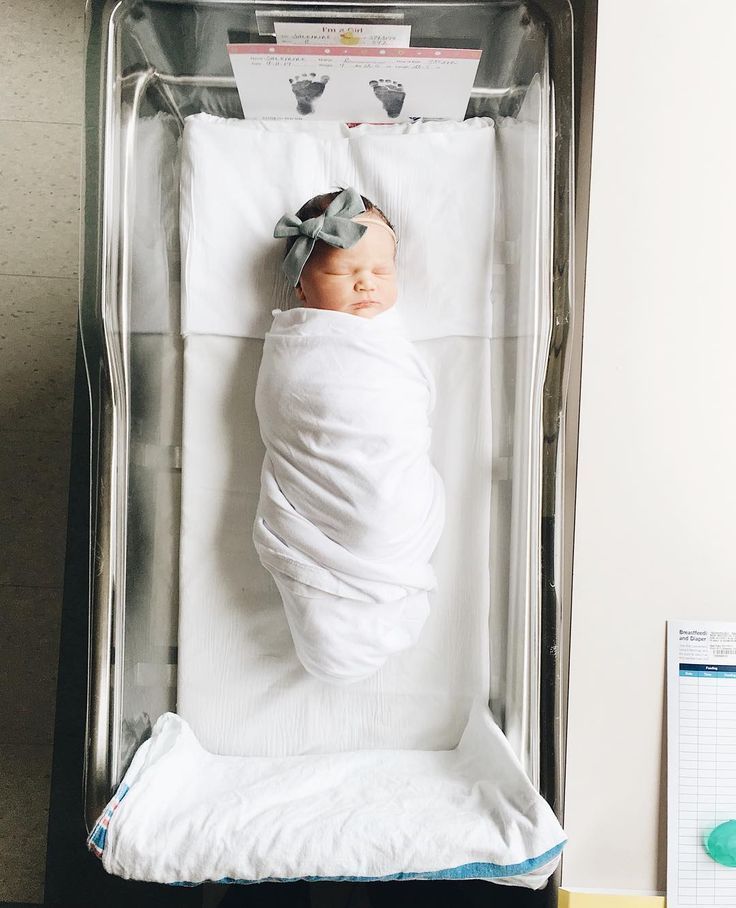 Make sure this is okay with the hospital first because they may already have these things available for you.
Make sure this is okay with the hospital first because they may already have these things available for you.
Headband Or Ponytail Holder
You’d be surprised how annoying long hair can be when you’re in the throes of labor! Avoid being bothered by pulling your hair back with a headband or ponytail holder.
Pillows
The hospital will probably have two thin pillows you can use during labor, but that might not be enough to keep you comfortable. We suggest packing a few extras just in case. If you do bring an extra pillow or two, cover it with a pillowcase that is a color other than white. That way the hospital won’t confuse your pillow for theirs.
Slippers
You may feel the need to walk around during your labor, however, hospital floors are notoriously cold. Bring a pair of slippers just in case. Non-skid socks will also do the trick if that’s what you prefer.
Camera
Though you might not want to take pictures of the birth itself, you’ll definitely want pictures of your sweet baby afterward!
A camera or smartphone is a necessity for this situation.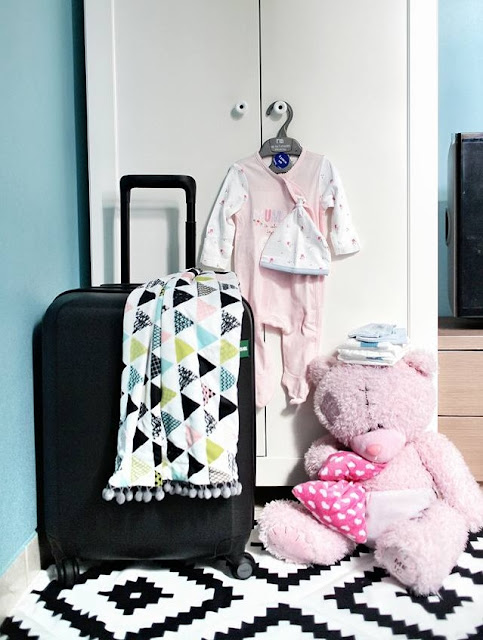 And don’t forget a charger so your camera or phone will always be ready to capture those priceless moments with your newborn.
And don’t forget a charger so your camera or phone will always be ready to capture those priceless moments with your newborn.
Recovery Bag
Pack this bag with the things you’ll need for your stay in the hospital after your baby is born. It also includes things you’ll need for the trip home.
Clothes To Wear Home
Pack some soft maternity clothes to wear home when you leave the hospital. Remember, you just gave birth. So loose, comfortable clothes are your best option.
Nursing Gown And Bra
If you choose to breastfeed your little one, having a nursing gown and bra will ease your nursing experience. And you can enjoy easy accessibility while nursing with these essentials.
Toiletries And Cosmetics
Pack the toiletries you use every day so you have what you need during your hospital stay. Be sure to include items like your toothbrush, toothpaste, shampoo, soap, deodorant, hairbrush, and moisturizing skin lotion.
Don’t forget to also bring a towel and flip flops for the shower.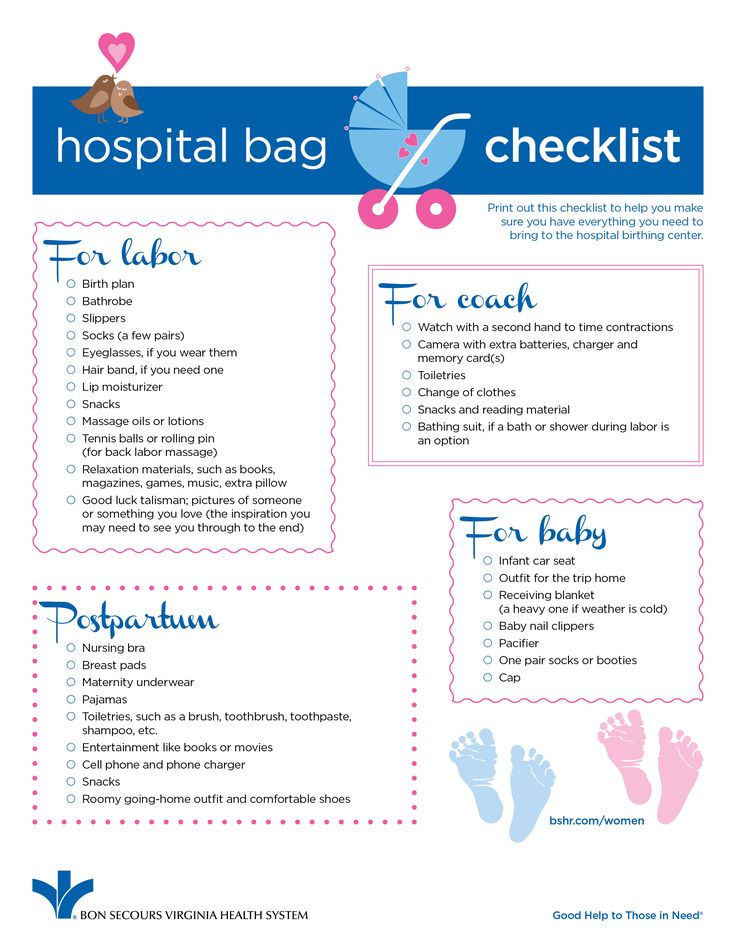 The hospital may provide a towel for you, but some women prefer to use their own.
The hospital may provide a towel for you, but some women prefer to use their own.
You may also want to consider bringing some makeup for pictures. Of course, we know makeup is not a top priority, but if you decide to use a little foundation, bronzer, or mascara, you’ll be happy to have your cosmetics on hand.
Expert tip: remember to pack your Mustela Cleansing Wipes. These are small, convenient, and great for removing makeup or cleansing your skin while you’re in the hospital.
Postpartum Cream
Continue using your Stretch Marks Serum after giving birth. This serum helps reduce the appearance of recent stretch marks. We suggest massaging the serum onto problem areas every evening and every morning for two months.
Note: Mustela’s Stretch Marks Recovery Serum is safe to use while breastfeeding, but do not apply it to C-section scars.
Extra Underwear
The hospital will provide you with mesh underwear, but you’ll need plenty of fresh underwear, so be sure to bring at least two extra pairs.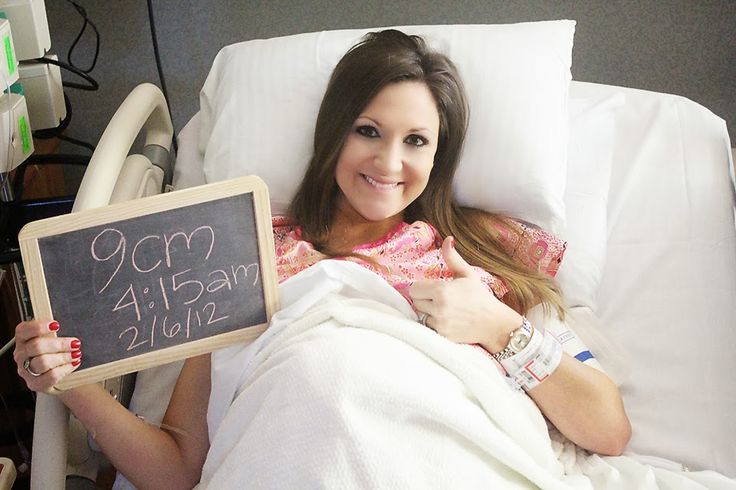 Search for postpartum underwear before packing your hospital bag to see what best suits your needs.
Search for postpartum underwear before packing your hospital bag to see what best suits your needs.
Bathrobe
For extra comfort during your post-labor walking breaks, bring along your coziest bathrobe. You’re going to want to get up and move around at some point after your labor, and a bathrobe makes that super simple.
Glasses, Contacts, And Lens Solution
In your rush to get to the hospital during labor, it’s easy to forget your glasses, contacts, or lens solution. Pack extras of each in your hospital bag so you can see your newborn in all his or her glory.
Maxi Pads
Maxi pads are an immense help in keeping you clean and comfortable after the birth of your baby.
The hospital usually provides these, but you might be more comfortable with a different brand, shape, or size.
Prescription Medications
Don’t forget to pack any prescription medications you may need for a one or two day stay in the hospital.
Sleep Mask
Trying to sleep in a hospital can be difficult.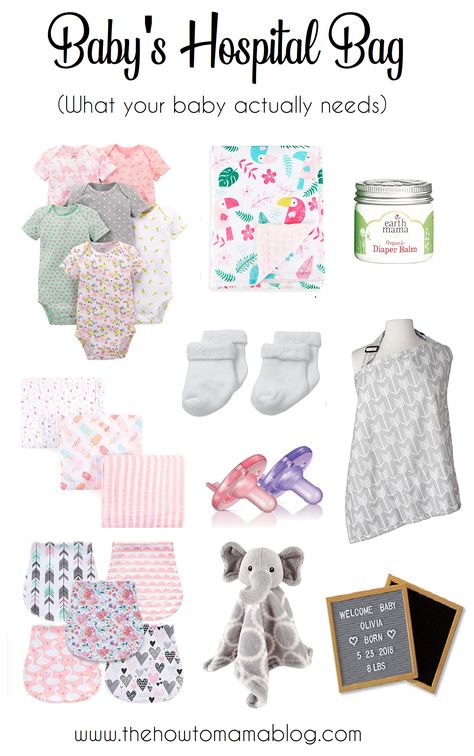 There’s always some light that can prevent you from falling asleep and staying that way.
There’s always some light that can prevent you from falling asleep and staying that way.
Include a sleep mask on your hospital bag checklist so you get the sleep you need to recover from the birth of your little one.
Earplugs
You may also want to pack earplugs to filter out the noise from the monitors, nurses coming and going, and activity in the next room.
And don’t worry about being awake and available for feedings. If your baby needs you, the nurses will wake you up.
Partner Hospital Bag Checklist
Encourage your partner to pack their own bag of essentials for the birth.
While they won’t need quite as much as you and the baby, having their own gear on hand can make the time at the hospital much easier.
At a minimum, we suggest they pack:
- Change of clothes (you never know when they might spill their coffee)
- Cell phone charger (they’ll probably have their cell phone on them, but they’ll need the charger if labor goes long)
- Entertainment (laptop, tablet, book, magazines, etc.
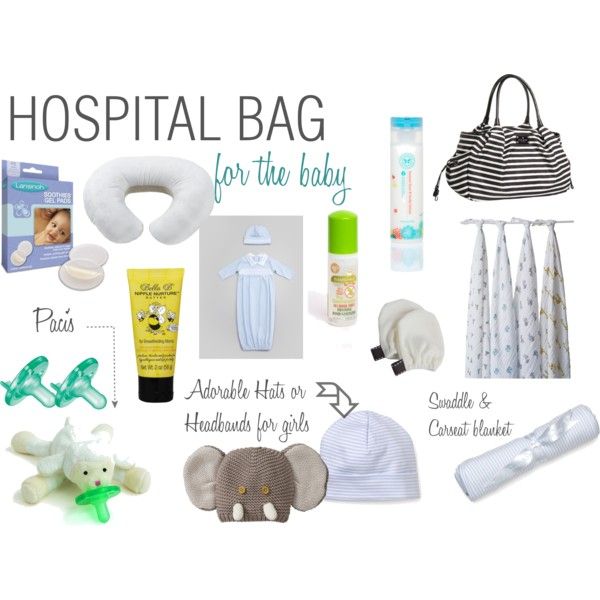 )
) - Snacks and water
If your partner plans on staying with you after the birth, they’ll need to include a pillow, blanket, eye mask, earplugs, and toiletries in their kit.
Sometimes, though, if you live close to the hospital, the nurses will encourage your partner to go home and get a good night’s sleep so they can come back fresh in the morning. This is especially common if you plan on breastfeeding your little one.
The nurses will be there to help you, so your partner may have nothing to do. They’re better off recuperating at home so they can support you the next day when you need it the most.
Talk to your doctor and the hospital about what they recommend and then your partner can pack their bag accordingly.
Choose Your Items Wisely
When packing your bags, keep in mind that, barring a long labor, you may only be in the hospital for one or two nights. Though that may seem like a long time, you’re going to be busy recovering from delivery and feeding and changing your baby.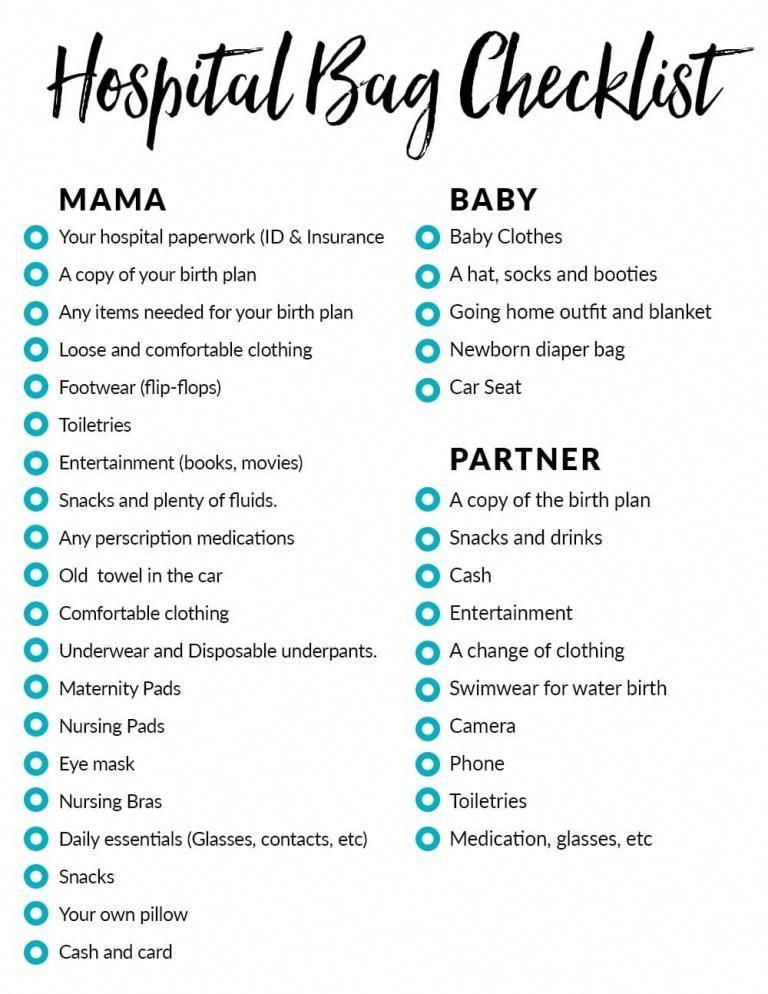
Neither you nor your baby has any use for the five designer outfits or the box of stuffed animals that your family already bought. Stick to the essentials and you and your baby will have a happy delivery and a smooth trip home.
What should I take with me to the hospital?
Approximately one month before the expected date of delivery, it is advised to collect the so-called "hospital bag", or hospital bag. I don't know about a bag, but a couple of suitcases are the best! Today we will talk about how to take everything you need and not forget the important.
About the suitcases above - it was not a joke. When you read how much you need to take, then roll yours out of the pantry too. Plus, it’s more convenient to push it along the long corridors of the hospital, instead of lugging a bag, car seat and ... who knows what else. So, the list of the most necessary for the hospital.
Card and birth plan
Thank God that, as in Russia, it is not necessary to fold passports, insurance policies and other documents.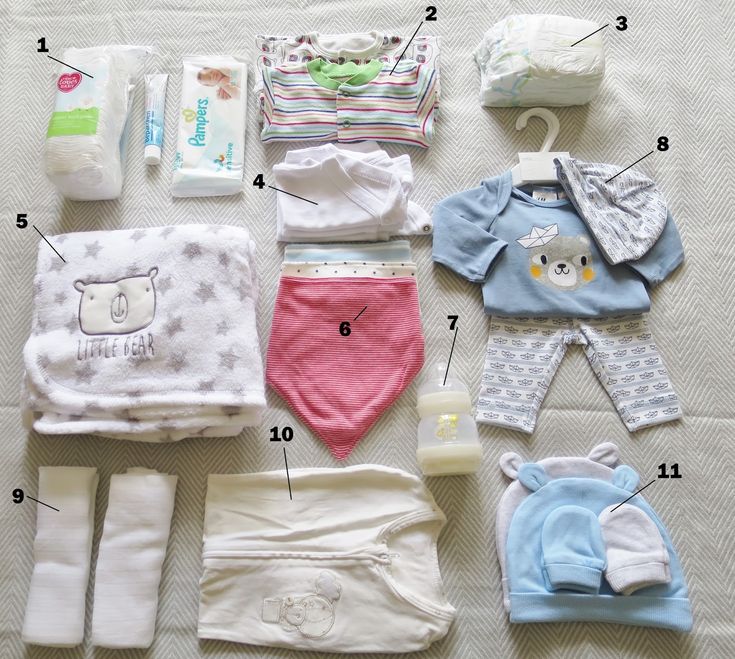 All that is required in England is a card with the management of your pregnancy and a short birth plan (in which you indicate how you would like to give birth and what painkillers to use). You will be asked for the card at the registration desk upon arrival at the hospital or birth center, so it is logical to put it on top.
All that is required in England is a card with the management of your pregnancy and a short birth plan (in which you indicate how you would like to give birth and what painkillers to use). You will be asked for the card at the registration desk upon arrival at the hospital or birth center, so it is logical to put it on top.
Helpful Tip: Be sure to prepare your husband or someone who will go with you to the hospital for the birth: show the card so they can easily find your patient number - they ask him when you call the hospital. You will also be asked a few things to write down:
- the time of the beginning of the contractions,
- the frequency and duration of the contractions (it is very convenient to download a special program on the phone that records these parameters by itself, you just press the button at the beginning of the contractions and at the end),
- the time when the plug came out and the water broke (if it has already happened).
Clothes for mom
Prepare the clothes in which you will go to the hospital in advance so that you don’t have to look for what to wear in the turmoil (and definitely don’t leave it to your husband’s choice, otherwise you can go in something very unpredictable).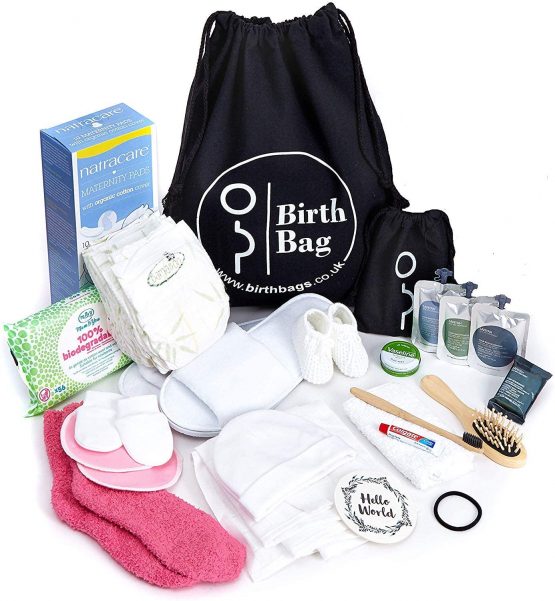 For the birth itself, take something very light and spacious - it is always very warm in hospitals, even in January I could be in the ward only in one cotton shirt! A few important points: during natural childbirth, you will be offered to feed the baby right away, so T-shirts with a high neck will not work - it is best to choose shirts and long T-shirts that unbutton at the chest. Be prepared for the fact that the thing in which you will give birth will have to be thrown away. Special shirts with ties at the back in English hospitals are issued only if you are going to have an epidural injection or a caesarean section. But they are the most comfortable! You can take a change of clothes, something very comfortable like a cotton shirt and a bathrobe, a pair of socks and slippers or slippers. After giving birth, ideally, you will breastfeed the baby, and this is where special bras will be needed, take two or three with you. Do not forget to take a change of clothes for discharge, taking into account the fact that your stomach will not disappear, but will be approximately the same as in the sixth month of pregnancy.
For the birth itself, take something very light and spacious - it is always very warm in hospitals, even in January I could be in the ward only in one cotton shirt! A few important points: during natural childbirth, you will be offered to feed the baby right away, so T-shirts with a high neck will not work - it is best to choose shirts and long T-shirts that unbutton at the chest. Be prepared for the fact that the thing in which you will give birth will have to be thrown away. Special shirts with ties at the back in English hospitals are issued only if you are going to have an epidural injection or a caesarean section. But they are the most comfortable! You can take a change of clothes, something very comfortable like a cotton shirt and a bathrobe, a pair of socks and slippers or slippers. After giving birth, ideally, you will breastfeed the baby, and this is where special bras will be needed, take two or three with you. Do not forget to take a change of clothes for discharge, taking into account the fact that your stomach will not disappear, but will be approximately the same as in the sixth month of pregnancy.
Hygiene
Although most hospitals will give you special pads, it's best to have enough with you, one or two packs. In addition, take five or six pairs of underwear (in case you have to change or you are left for longer than you expected). Gather a small cosmetic bag with everything you need for taking a shower, it is better to take miniatures and samplers of products. Don't forget: shower gel or soap, washcloth, comb, toothbrush and paste, shampoo and conditioner, moisturizer for face and body (skin can be very dry!), lip balm (also useful during contractions when lips dry and crack), deodorant (hormones can give you a new unusual smell). If you want to look your best, of course, you can grab some decorative cosmetics, but as a rule, this is superfluous, relax, you are in England, where no one needs to prove that even after giving birth a woman can look like a supermodel. Don't forget to take a bath towel. By the way, many companies offer to buy already assembled bags with mini-volumes of cosmetics, clothes and basic little things.
Read on:
Cosmetics during pregnancy: what to use?
Do not die of boredom
No one knows in advance how long the contractions will last. One of my acquaintances complained that she had terrible contractions, with additional questions it turned out that nothing happened for two days, and she was dying of boredom. I can’t call it bad contractions, but in order to pass the time, you can take a book or a couple of magazines with you, or pre-record a few favorite TV shows or movies on your phone or tablet. Many English midwives recommend taking relaxing or, on the contrary, invigorating music to relax or set yourself on the right wavelength. You don't have to take a camera if your phone has enough megapixels. Do not forget chargers for all your gadgets, otherwise they will be of no use.
Water and food
I will never forget how in preparatory courses we were told to rely on the fact that there is nothing in the hospital, just in case.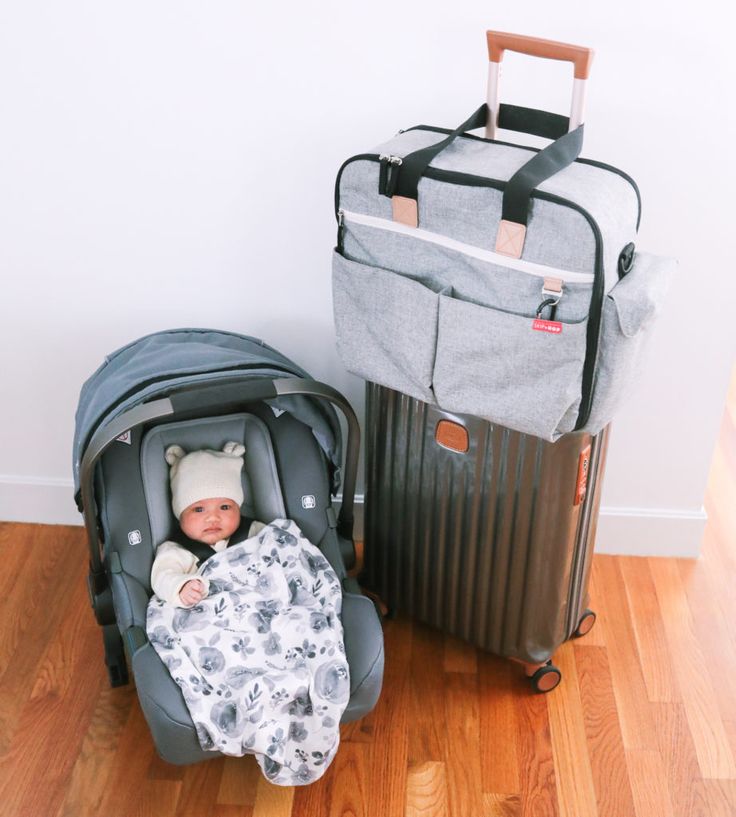 On the one hand, this is true: everything should be with you and ready. So, the first thing we were advised to take with us was water. Therefore, for about a month I had bottles of Lucozade water and energy drinks ready in my refrigerator - they are also recommended by English resources, and for good reason, they help a lot!
On the one hand, this is true: everything should be with you and ready. So, the first thing we were advised to take with us was water. Therefore, for about a month I had bottles of Lucozade water and energy drinks ready in my refrigerator - they are also recommended by English resources, and for good reason, they help a lot!
Be sure to take a plastic cup and a straw with you - if you have to spend a long time in an uncomfortable position, at least this way you can drink water. It is unlikely that you will want to eat during contractions, but it is good to have something tasty and energetic on hand, especially if the process drags on. For example, your favorite chocolate bar, banana, some honey, grapes. Don't forget about food for your husband, although let him assemble his own lunch box!
For baby
Expect to spend at least 24 hours with your baby in the hospital (or even four days if you have to have a caesarean section), so you can take a basic set of things and accessories with you, and leave the spare at home - in extreme cases, it will be possible to send a husband for him, and not explain which shelf the vest is on. So, the most necessary for the baby:
So, the most necessary for the baby:
- soft blanket,
- diapers (at the rate of about 12 per day) and wet wipes,
- diaper cream and moisturizer (use the samples that were given to you by coupons from maternity magazines!),
- several T-shirts and pajamas ,
- an outfit and a hat that you will dress your baby in after birth,
- a bottle and a mixture if you are not going to breastfeed.
The Unforeseen
Perhaps the most important thing that I missed was the nipple cream, which I safely left at home, believing that I would “shoot back” in a day, be sure to take it with you (any cream consisting of 100% lanolin, no rinsing required). And food. Yes, in the hospital they fed three times: breakfast, lunch and dinner. However, dinner was at five or six in the evening, and the last round with painkillers was at ten. Some of them are desirable to take after a meal, so after the first night we stocked up on fruits, cheese biscuits and natural orange juice.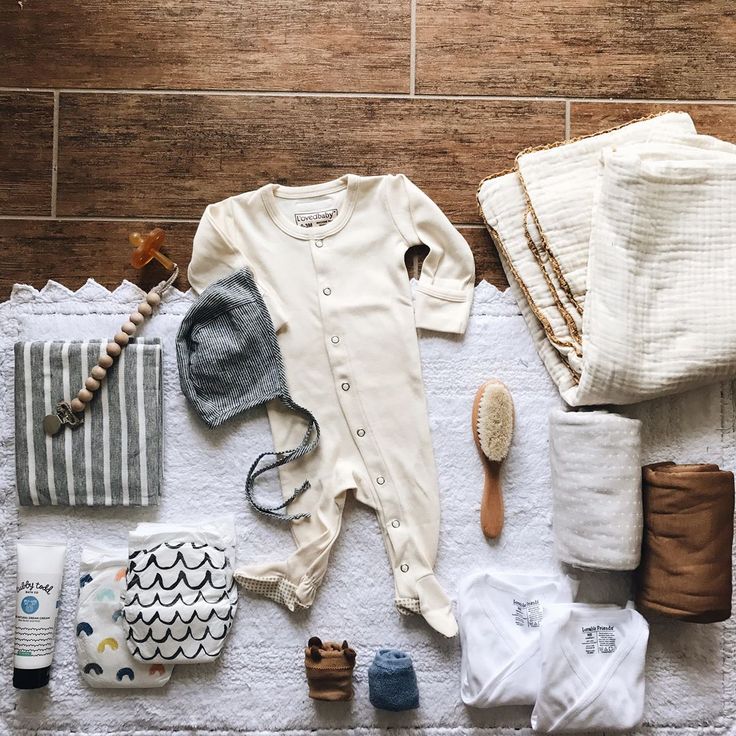 It makes sense to send your husband to the nearest store for provisions, because after giving birth you will most likely have an appetite!
It makes sense to send your husband to the nearest store for provisions, because after giving birth you will most likely have an appetite!
Extra little things
It is customary here to thank the team of doctors, it is not at all necessary to bring chocolates and flowers with you, just postcards with nice words - they then hang them on the wall and rejoice, are proud. Therefore, you can buy a thank you card and a pen in advance.
Home sweet home
If you are going home by car or taxi, you will definitely need an infant carrier. A wheelchair is sufficient for traveling by bus. All English magazines write about how convenient it is to prepare food in advance and freeze it in portions. The more I read about it, the more I realized that this is alien to me: cook lasagna, divide it into portions, freeze, and then defrost, heat and eat. It's much easier to throw a whole chicken into a pot, add spices, vegetables and noodles and cook a delicious soup.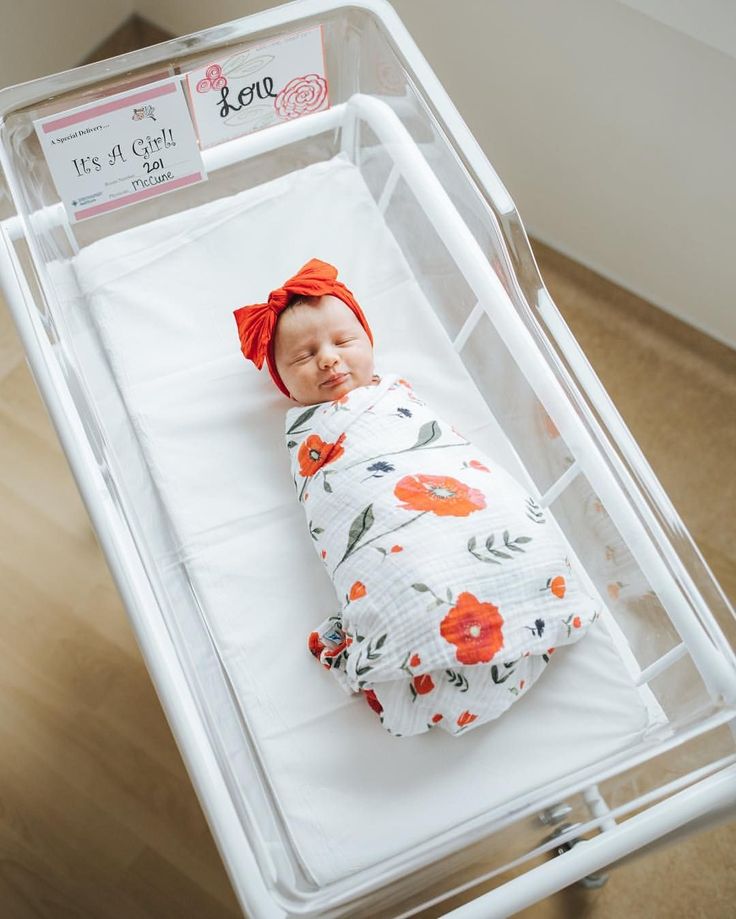 Or, at worst, order food with home delivery. Better yet, invite friends and relatives who are eager to see the baby and ask them to bring lunch!
Or, at worst, order food with home delivery. Better yet, invite friends and relatives who are eager to see the baby and ask them to bring lunch!
Elena Leslie
Maternity bag for mum and baby list 2022
The moment you go into labor, you won’t have time to pack your bag, so after giving birth you may find that you didn’t take with you something very important. For example, glasses. So it’s better to fold the bag to the hospital in advance: at 36 weeks of pregnancy. Here is a list of necessary things: for mom, newborn and partner, if he will accompany you during childbirth.
Alla Rezyapova
Legion Media
Just follow this checklist and your bag will have everything you need and no ballast. And do not forget to throw a comb, phone, passport, policy and insurance certificate into your bag at the last moment.
Contents of the article
Checklist: maternity bag for mum
Basic items and documents:
- Passport,
- MMI policy,
- Contract for paid delivery and postpartum care (if you chose a private clinic),
- SNILS,
- Exchange card from the antenatal clinic, with all tests and examinations - without it you must be sent to the infectious diseases department of the maternity hospital,
- Copy of the sick leave from the antenatal clinic.
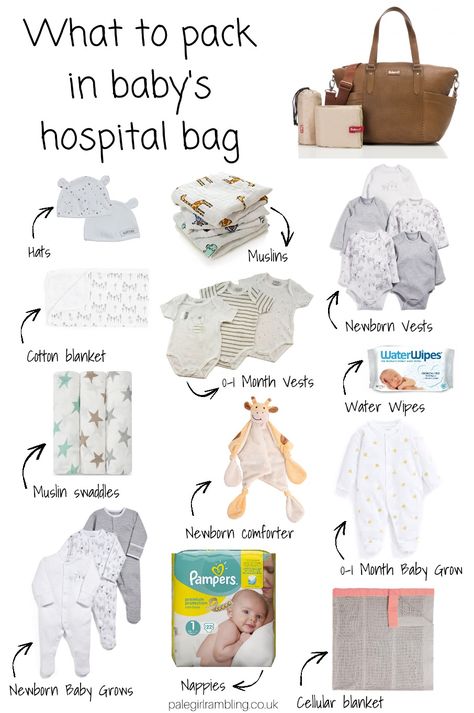
Without these documents, after 36 weeks it is better not to leave the house, even if you go to take out the trash or to the store on the corner.
Birth plan
This document should cover all your wishes regarding possible birth scenarios. It is best to make this plan with the doctor who is managing your pregnancy or who will be delivering you, if available. Need to discuss:
- The possibility of having a baby through the birth canal,
- Induction of labor,
- Anesthesia,
- Pain after caesarean section,
- The ability to cut the cord yourself,
- Breastfeeding after childbirth - and many other things.
Of course, things may not go according to plan - but the very fact of having this paper (which in many private clinics has a completely official status) will help you in the process of childbirth.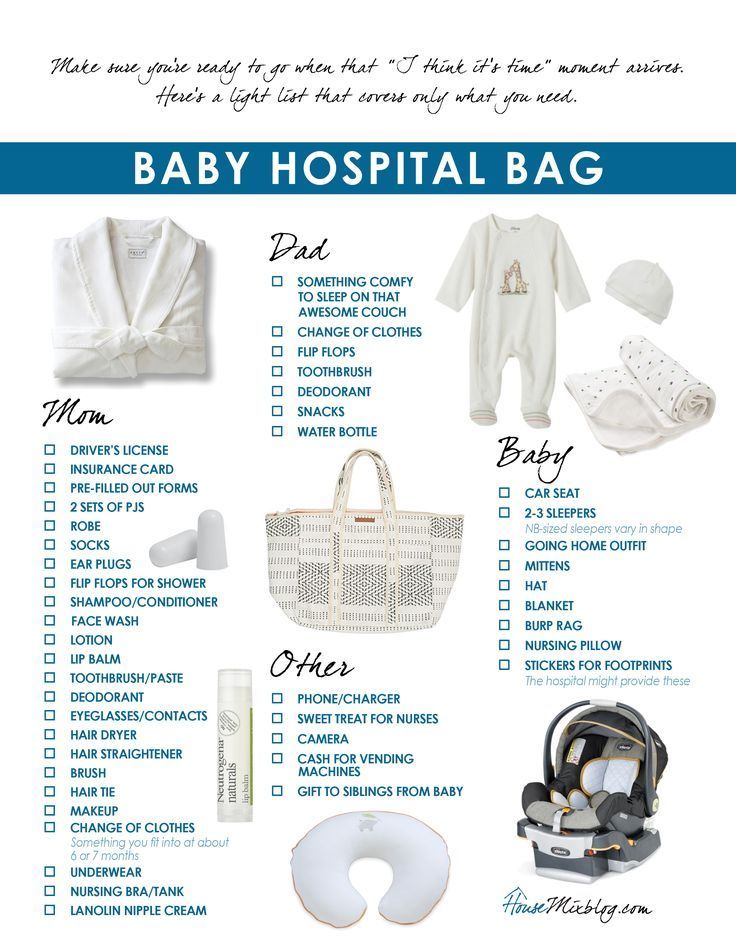 You and your partner will be able to insist more firmly on the need, for example, for epidural anesthesia or to refuse the use of oxytocin. Your partner will have a list of your wishes in front of their eyes and will be able to take care of you when you yourself are unable to. The role of a partner can also be performed by a mother, best friend, doula, psychologist or confessor.
You and your partner will be able to insist more firmly on the need, for example, for epidural anesthesia or to refuse the use of oxytocin. Your partner will have a list of your wishes in front of their eyes and will be able to take care of you when you yourself are unable to. The role of a partner can also be performed by a mother, best friend, doula, psychologist or confessor.
Personal items:
- Toiletries.
- Toothbrush,
- paste,
- lip balm,
- antiperspirant (preferably in a roll or stick, if you share a room with roommates, you will be cursed for the spray),
- comb,
- face and hand cream,
- any cosmetics, if you are going to use them,
- hair ties - with a margin, they will definitely get lost.
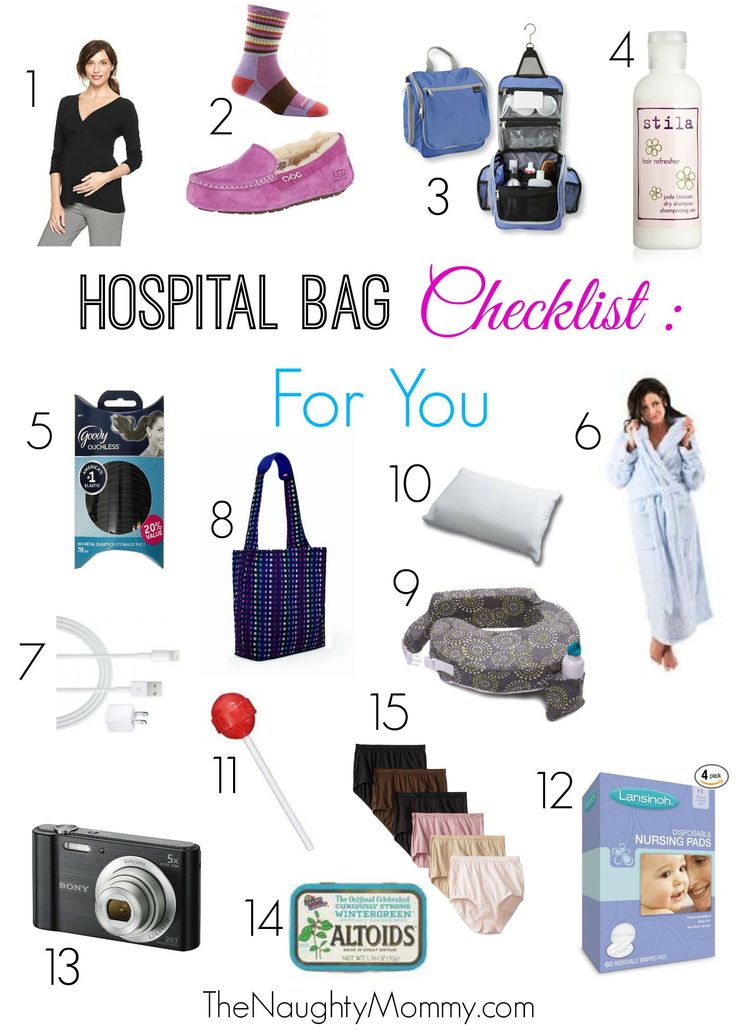
- Take your shampoo, cleanser and soap.
- Bring a hanging bag for hygiene items: latrines are usually crowded and will help you a lot.
Buy nipple cream in advance.
Gaskets. Large night pads are extremely absorbent. A lot of.
- Glasses. Many women prefer contact lenses, but it can be uncomfortable in the hospital. In addition, if you are having a caesarean section, you will be asked to remove your lenses. Just in case, take your glasses with you, and if you plan to be in the postpartum ward wearing lenses, do not forget to take solution and containers with you.
Clothes:
- A warm bathrobe, a nightgown or two, warm socks and slippers to wear over them. Choose loose, comfortable clothes without sleeves or with short loose sleeves - you will have your blood pressure taken, you should be comfortable. Consider making clothes easy to unfasten at the front: this will ensure contact with the newborn and help breastfeeding.
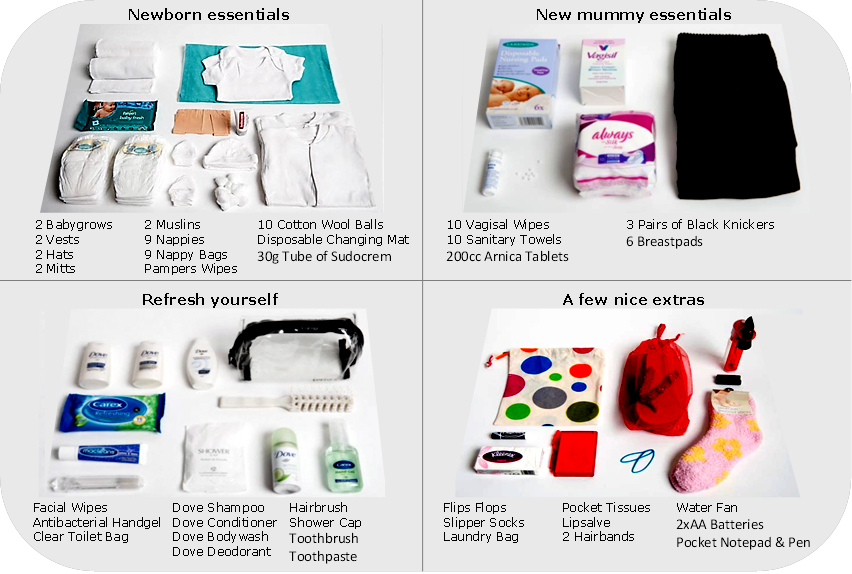 Do not take clothes to the maternity hospital that will be a pity to get dirty or hard to wash: they can be stained with blood and other bodily fluids.
Do not take clothes to the maternity hospital that will be a pity to get dirty or hard to wash: they can be stained with blood and other bodily fluids. - Comfortable change clothes. Some mothers prefer to take off their nightgown while in the hospital, especially if someone is visiting them. Take soft knitted pants with you, preferably without cuffs and with a drawstring instead of elastic. The belly will still look pregnant, so bring loose clothing with you. If you are having a caesarean section, the clothing should be soft enough not to disturb the seam. Take a pair of comfortable boots or slip-ons without heels with you for discharge. It’s great if it doesn’t have laces or complicated fasteners.
- Take some maternity underwear. Soft and not too tight briefs made of natural materials are perfect.
- Choose your nursing bras in advance. When milk comes in, the breasts may be swollen and painful. This can happen in any of the first days after childbirth. A good bra will provide support and minimal comfort, while nursing pads will protect against leaks.

Essentials:
- For comfort. A photograph of a loved one, a plush toy, essential oils (only if you have a private room), or anything else that makes you feel safe.
- Bring a massage lotion or oil if you are going to have a massage during labor (for example, this is a common option for doula births).
- Download the playlist you want to listen to on your smartphone or player and take your portable headphones. If there is an agreement that you want to turn on music during childbirth, take a portable speaker with you.
- Put books, magazines or a tablet in your bag. Entertainment will come in handy: at the beginning of childbirth, when time can drag on truly endlessly, and in the postpartum period.
Postpartum supplies:
- Snacks! After the long hours of labor, you will most likely be hungry and will not be able to wait for the scheduled feedings.
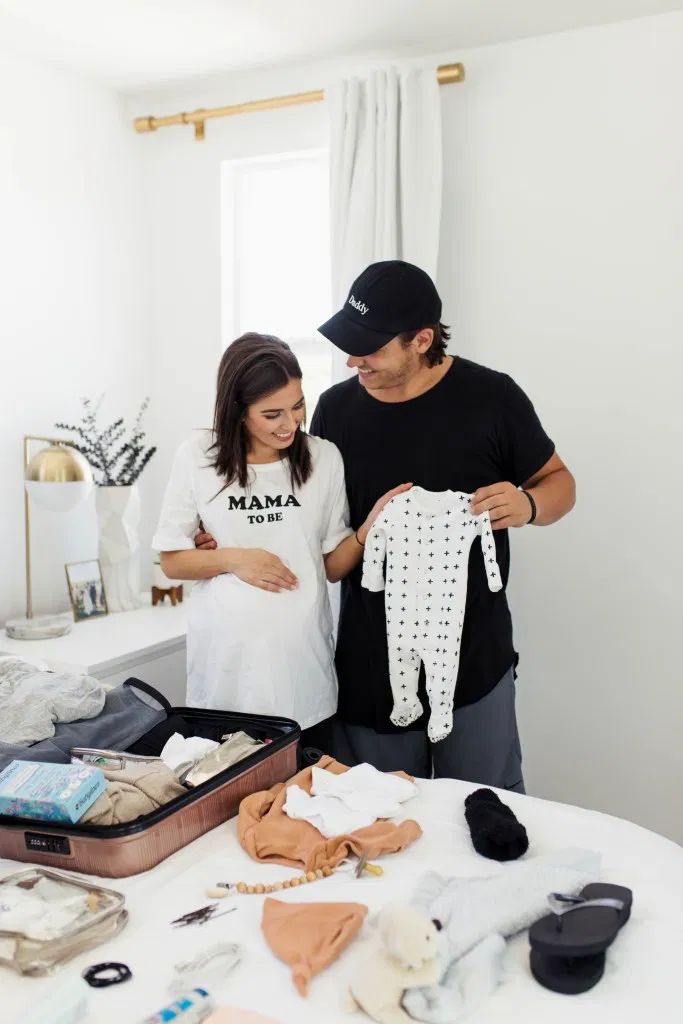 Have nuts, dried fruits, muesli and protein bars, crackers, and whatever else you might want (but don't go rotten or go bad) for this occasion. If you had a caesarean section, then you will most likely be allowed liquids in an hour - but it is better to discuss this issue with your doctor.
Have nuts, dried fruits, muesli and protein bars, crackers, and whatever else you might want (but don't go rotten or go bad) for this occasion. If you had a caesarean section, then you will most likely be allowed liquids in an hour - but it is better to discuss this issue with your doctor. - Sleep mask and earplugs. If the room is too bright or too noisy, they will help you sleep.
- Notebook or notebook and pen. Some immediately take a children's diary with them to record the details of the birth of a child. It is convenient to write questions to the doctor in a notebook: on the round, they all fly out of the head, as luck would have it.
- Newborn care book or supplement. The nurses will answer questions and show you how to change, hold, feed and bathe your newborn. But if you don't want to rely on their support, it's worth having your own help resources.
- Nursing pillow. A specially designed pillow will provide better support than hospital pillows.
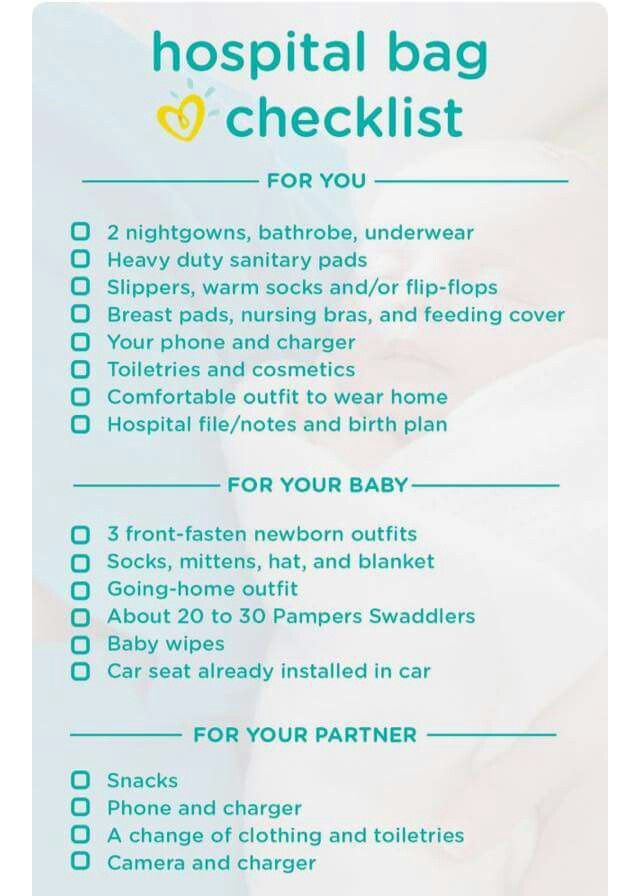
- Gifts for older brothers and sisters. Some mothers of many children take small cute gifts with them to the hospital to give them to their older children when they come to visit her. These gifts seem to be given by their younger brother or sister - it is believed that this helps them accept replenishment in the family.
Checklist: Maternity bag for partner
- Camera or video camera. If it seems to you that the smartphone camera is not enough. Do you want to capture this unique moment?
- Toiletries.
- Comfortable shoes (he will have to spend a lot of time on his feet) and several changes of comfortable clothing.
- Snacks and drinks.
- Books and magazines.
- Mobile phone, power bank and charger: everyone will want to know how you are doing, and he will have to keep in touch.
- Cash, change and bank card. Change - for snack and coffee machines, cash - for hospital stores and canteens, card - for all other cases.
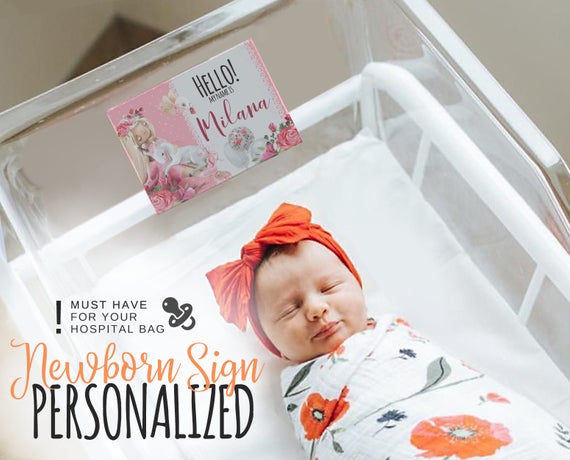
- A pillow and a small blanket is not a guarantee that a hospital will provide a partner with a sleeping kit.
- Regular prescription drugs, pain relievers, joint ointment, in case you have to doze off in a hard hospital chair.
youtube
Click to view
Checklist: Maternity bag for baby
- Baby nail clippers or file. Newborns often have tiny, pointed nails that can scratch them. Use children's nail files or nail clippers - or you can take mittens for newborns.
- Newborn diapers and wipes.
Clothes for discharge:
- One-piece suit made of natural fabric,
- cotton socks if the suit has open legs.
- Cotton cap.
- Fleece overall.
- Wool socks.
- Thin warm hat.
- Quilted envelope or coverall.
- Baby blanket.
- Car seat if you plan to drive home.
